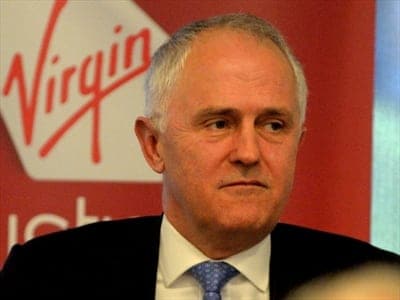



Malcolm Turnbull believes the government’s message is slowly cutting through with the need for a tough budget but concedes the government could have done better selling it.
The government frontbencher says once people accept that the government was spending more than it was receiving, they recognise something has to be done.
“(If) not enough people are aware the scale of the problem then clearly we have not done a good enough job in terms of getting that message across,” Mr Turnbull told a lunchtime discussion at a conference in Canberra on Monday.
“Increasingly they do, but it takes time.”
Treasury Secretary Martin Parkinson also told Australian National University’s Crawford Leadership Forum that the budget status quo was unsustainable and opposing reforms would assign Australia to a deteriorating future.
“The decisions taken in this budget, whether you like them or not, have made very significant structural improvements,” Dr Parkinson said.
The Reserve Bank will be watching the debate raging over the budget with close interest given the initial, steep negative impact it had on consumer confidence, albeit now slowly recovering.
The central bank holds its monthly board meeting on Tuesday with economists broadly expecting no change in the 2.5 per cent cash rate.
It has been at this all-time low since August last year.
New data on Monday is unlikely to have changed that view.
New homes sales fell 4.3 per cent in May, while credit demand rose by a timid 0.4 per cent for the same month.
The TD Securities-Melbourne Institute monthly inflation gauge for June was also unchanged from May but still saw the annual rate rising to three per cent and the top of the RBA’s target.
TD Securities head of Asia-Pacific research Annette Beacher said that while the RBA has previously sighted signs of improvement in domestic data, it is likely to reaffirm the need for a lower Australian dollar to foster economic growth.
She expects that even if official inflation figures for the June quarter – due towards the end of next month – exceed the top of the RBA’s two to three per cent target, it is willing to run the risk of higher inflation before it lift rates in its attempt spur economic growth.
Ms Beacher does not expect an increase until early 2015.
Economist Ross Garnaut told the conference the dollar was out of sync with activity in the economy.
“It is very easy going up … reversing it is very hard,” he said.